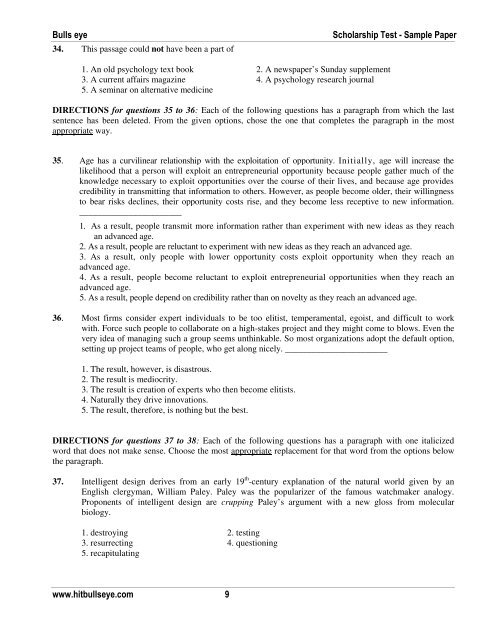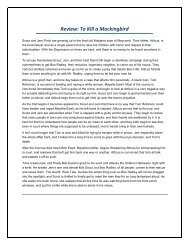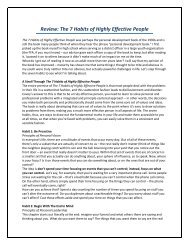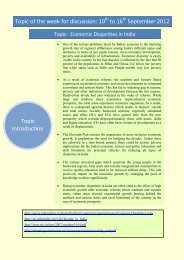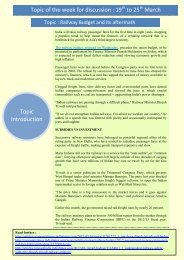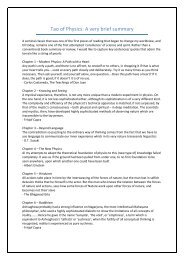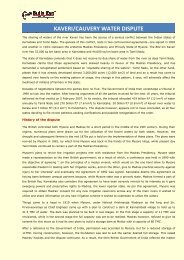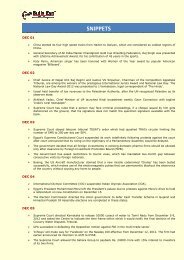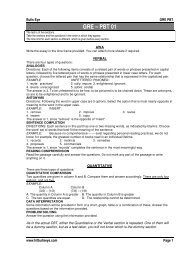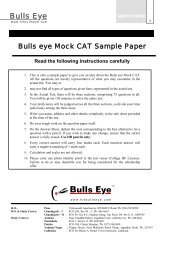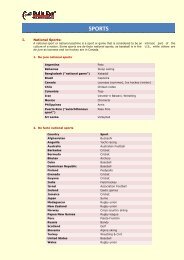Sample Paper - Scholarship Test - Bulls Eye
Sample Paper - Scholarship Test - Bulls Eye
Sample Paper - Scholarship Test - Bulls Eye
Create successful ePaper yourself
Turn your PDF publications into a flip-book with our unique Google optimized e-Paper software.
<strong>Bulls</strong> eye <strong>Scholarship</strong> <strong>Test</strong> - <strong>Sample</strong> <strong>Paper</strong><br />
34. This passage could not have been a part of<br />
1. An old psychology text book 2. A newspaper’s Sunday supplement<br />
3. A current affairs magazine 4. A psychology research journal<br />
5. A seminar on alternative medicine<br />
DIRECTIONS for questions 35 to 36: Each of the following questions has a paragraph from which the last<br />
sentence has been deleted. From the given options, chose the one that completes the paragraph in the most<br />
appropriate way.<br />
35. Age has a curvilinear relationship with the exploitation of opportunity. Initially, age will increase the<br />
likelihood that a person will exploit an entrepreneurial opportunity because people gather much of the<br />
knowledge necessary to exploit opportunities over the course of their lives, and because age provides<br />
credibility in transmitting that information to others. However, as people become older, their willingness<br />
to bear risks declines, their opportunity costs rise, and they become less receptive to new information.<br />
_______________________<br />
1. As a result, people transmit more information rather than experiment with new ideas as they reach<br />
an advanced age.<br />
2. As a result, people are reluctant to experiment with new ideas as they reach an advanced age.<br />
3. As a result, only people with lower opportunity costs exploit opportunity when they reach an<br />
advanced age.<br />
4. As a result, people become reluctant to exploit entrepreneurial opportunities when they reach an<br />
advanced age.<br />
5. As a result, people depend on credibility rather than on novelty as they reach an advanced age.<br />
36. Most firms consider expert individuals to be too elitist, temperamental, egoist, and difficult to work<br />
with. Force such people to collaborate on a high-stakes project and they might come to blows. Even the<br />
very idea of managing such a group seems unthinkable. So most organizations adopt the default option,<br />
setting up project teams of people, who get along nicely. _______________________<br />
1. The result, however, is disastrous.<br />
2. The result is mediocrity.<br />
3. The result is creation of experts who then become elitists.<br />
4. Naturally they drive innovations.<br />
5. The result, therefore, is nothing but the best.<br />
DIRECTIONS for questions 37 to 38: Each of the following questions has a paragraph with one italicized<br />
word that does not make sense. Choose the most appropriate replacement for that word from the options below<br />
the paragraph.<br />
37. Intelligent design derives from an early 19 th -century explanation of the natural world given by an<br />
English clergyman, William Paley. Paley was the popularizer of the famous watchmaker analogy.<br />
Proponents of intelligent design are crupping Paley’s argument with a new gloss from molecular<br />
biology.<br />
1. destroying 2. testing<br />
3. resurrecting 4. questioning<br />
5. recapitulating<br />
www.hitbullseye.com 9


